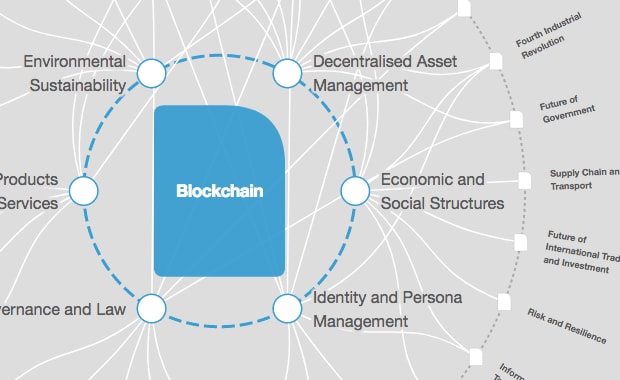Here's how blockchain could stop corrupt officials from stealing school lunches

School meal procurement is a microcosm of the problems that arise in public procurement. Image: REUTERS/Enrique Castro-Mendivil

Get involved with our crowdsourced digital platform to deliver impact at scale
Stay up to date:
Blockchain
Around the world, the potential for corruption is often exploited where there is a conflict of interest in decision making, leading to the misallocation of public funds.
A foreign bribery report from the Organisation for Economic Co-operation and Development (OECD) stated that 57% of foreign bribery cases occurred to obtain a public procurement contract. When it comes to the allocation of national procurement budgets, the OECD reports that an estimated 20-25% is lost to corruption globally at the government level.
With the scale of many public contracts, which can be worth several million dollars, public procurement systems are an important component of a country’s spending. In Colombia, where the World Economic Forum and key partners are developing an innovative new project to address gaps in government transparency, the proportion of GDP attributed to public procurement is 12.5%, which accounts for 35.7% of the government’s total spending.
It is estimated that the annual cost of corruption in Colombia is $17 billion, which is equivalent to 5.3% of the nation’s GDP. Of this amount, $7.2 billion, or 10% of the government’s yearly budget, is estimated to be lost to corruption in the public sector, which includes public procurement.
Owing in part to historically complex and opaque tendering processes, close interactions between public officials and business, and the multitude of stakeholders, government tendering is often the leading site of public sector corruption in a developing country.
One needs only to look at the famed example of Odebrecht S.A., the Brazilian construction firm who, between 2001 and 2016, conducted both illegal campaign financing and large-scale bribery of about $800 million to secure more than 100 contracts across 12 countries including Colombia.
In Colombia, school meal procurement is a smaller-scale yet salient microcosm of the problems that arise in public procurement. It is reported that the public sector has historically paid egregious prices for standard goods. The local Colombian newspaper El Tiempo, for example, found that chicken breasts were sold to schools at $12 (COL$40,000), or about four times the price of local supermarkets.
Even more concerning are the reports that goods that are purchased are not always delivered. The former mayor of Cartagena has been charged for illegally contracting a deal of over COL$23 million (about $7,000), in which 2.6 million loaves of bread were bought, one million of which were never delivered to schools.
School meals constitute the primary meal for many of Colombia’s poorer children. Where do these meals go? El Tiempo says the funding for their procurement has been pocketed by public figures and officials, as well as a small number of food contractors.
The World Economic Forum has partnered with the Inter-American Development Bank and the Colombian Inspector General’s Office to explore how distributed ledger technology can improve public transparency and integrity in school meal procurement.
The project, which is taking place this year, is multi-faceted and includes a software implementation with blockchain technology for the selection of school food vendors. It is co-designed with several partners from academia, the IT industry, and the non-profit world, including economists and computer scientists from the blockchain economics and governance consulting firm Prysm Group, the National University of Colombia, U.C. Berkeley, and the blockchain security firm Quantstamp.
How is the World Economic Forum promoting the responsible use of blockchain?
Blockchain technology provides three core economic benefits to many processes: commitment, coordination, and control. Due to blockchain’s tamper-resistant record-logging features, the first benefit – commitment – can reduce risk in government procurement through an increase in data record integrity and credibility of publicly available information. This will be particularly beneficial in enabling contractor selection and monitoring performance.
In the contractor selection phase, which is the focus of the Forum’s initial project, blockchain can help improve the transparency, fairness, and competitiveness of the bidding process. By forcing a tenderer to publicly commit to contract terms and selection criteria before any bids are elicited, the solution eliminates the risk of request for proposals, or selection criteria being tailored post-publication to favour specific contractors.
For competing vendors, a blockchain-based solution creates permanent and tamper-proof bid records to preclude a firm’s ability to alter submitted bids after learning new information about competing bids. In addition, this transparency can attract vendors to the procurement process by increasing the perception of fairness and the possibility that an outsider could win using clearly-defined selection criteria.
Actions and decisions during the auction and vendor evaluation are automatically recorded in a manner that is permanent and publicly viewable, meaning the process is easy to audit. The result is a fully auditable and accurate record-keeping system that does not rely on another party. Importantly, the solution could include a user interface for the public to monitor actions and decisions to flag risks in real-time, enabling monitoring authorities such as the Inspector General’s Office to investigate potential corrupt activity before the auction concludes.
In terms of monitoring the chosen contractor’s performance, blockchain could help ensure that information regarding actual deliveries is available to key stakeholders including parents, teachers, enforcement officials, and the press. Participants, such as teachers, could use the system to report on meal deliveries and quality in real-time. Improving observation in the delivery process and enabling stakeholder monitoring and engagement would improve both formal and informal accountability of contractors.
It is important that any process seeking to address complex human challenges, such as corruption, is coupled with legal and institutional actions that address gaps and requisite institutional capacities. Technology alone cannot solve such ingrained challenges as corruption. While the development of the underlying blockchain technology is important, in order to reduce corruption and the possibility of new solutions being gamed, effective economic and incentive design are also required. Prysm Group's framework for the economics of blockchain has further information on the levers of economic design.
According to a World Trade Organization report, the introduction of more efficient and transparent government processes can have a great impact on a country’s economy, and savings of as much as 10% can turn the budget deficit from procurement processes into a budget surplus for some European countries.
The World Economic Forum’s new co-designed project for improving public school meal procurement is an exciting initiative in e-government that expands how the public sector experiments with new digital solutions in the Fourth Industrial Revolution. The solution and the lessons learned from the project can be used in other jurisdictions in Latin American and beyond, supporting new global dialogues on technology-based solutions for government transparency and process integrity around the world.
Don't miss any update on this topic
Create a free account and access your personalized content collection with our latest publications and analyses.
License and Republishing
World Economic Forum articles may be republished in accordance with the Creative Commons Attribution-NonCommercial-NoDerivatives 4.0 International Public License, and in accordance with our Terms of Use.
The views expressed in this article are those of the author alone and not the World Economic Forum.
The Agenda Weekly
A weekly update of the most important issues driving the global agenda
You can unsubscribe at any time using the link in our emails. For more details, review our privacy policy.
More on Emerging TechnologiesSee all
Agustina Callegari and Daniel Dobrygowski
April 24, 2024
Christian Klein
April 24, 2024
Ella Yutong Lin and Kate Whiting
April 23, 2024
Andre S. Yoon and Kyoung Yeon Kim
April 23, 2024
Simon Torkington
April 23, 2024
Thong Nguyen
April 23, 2024







